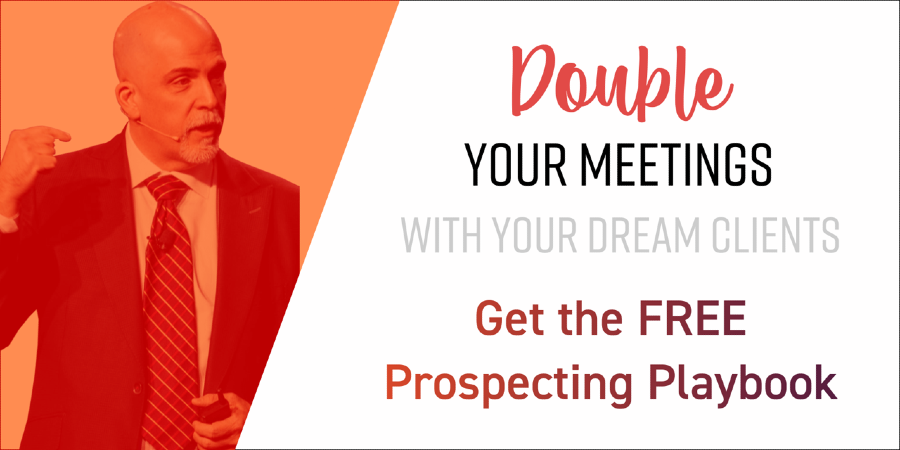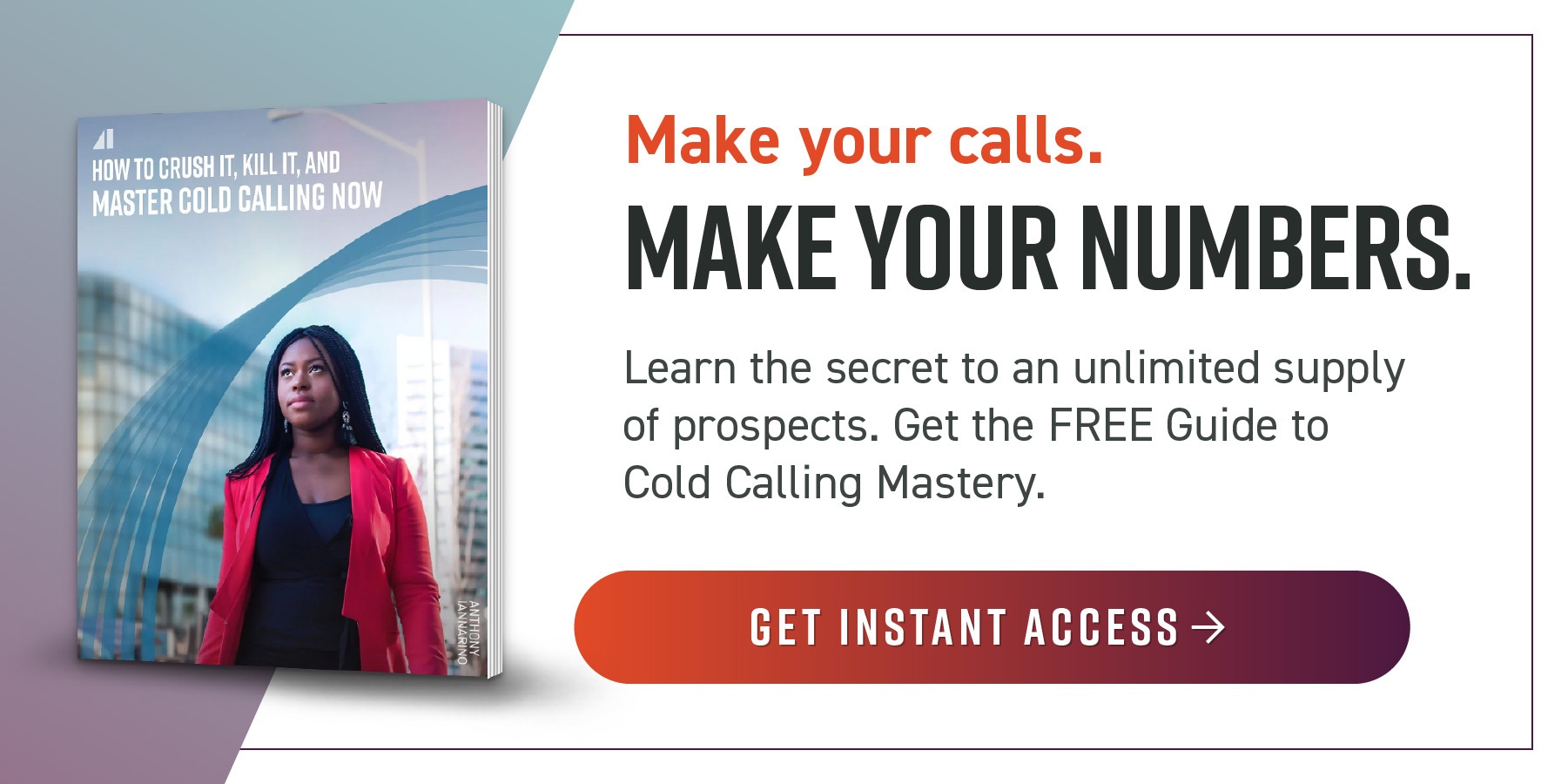If you or someone you know has sales call reluctance, you have come to the right place. I am perfectly qualified to help you overcome it. When I was 12 years old, I knocked on doors and asked people to buy the Sunday newspaper. When I was 15, I was making cold calls for a charity. Before my 19th birthday, I was making cold calls in my family's staffing business.
For a while, I lived and worked in Los Angeles, where my manager forced me into outside sales, a role requiring me to make cold calls and schedule meetings. A few years later, I was back in my hometown and made cold calls for eight hours a day. I made thousands of cold calls, and many were a waste of time, but enough of them resulted in deals. Sometime later, as a sales leader, I figured out the only way to remove a salesperson’s reluctance to make calls, while also allowing them to get 4 meetings out of 10 conversations. If you do a little uncomfortable work, you can pick up the phone with the confidence you need to interrupt your contact and ask them for their time.
Where Sales Call Reluctance Comes From
The first cold call I made when working in my family's business could have led to call reluctance. I read the script exactly as written on the index card. My contact was not impressed. Before hanging up on me, he said, "Call me when you don't need a script." Before I started making calls, no one had warned me that I should avoid sounding like I was reading a script. I called for help, and my mom (a legendary cold caller) and her business partner told me to call the contact back and say I didn't need the script. It is difficult to call a person back after they hung up in your face, but I followed their directions. It worked. I got the meeting with a company called Snair.
Later, I dialed a phone number and an angry aggressive person picked up. He screamed at me for interrupting him, told me that he was busy, and demanded that I stop calling him, even though this was the first time I had contacted him. He slammed down the phone. Having had success by calling back before, I tried again. This didn't work nearly as well as the first time, and I was introduced to new curse words and some interesting insults, most of which were inaccurate.
The way you acquire a case of sales call reluctance is by not having a good template that provides you with a sense of confidence. Instead, you worry about bumping into what we can describe as grouchy people. The best way to think about grouchy people is that they have low blood sugar, they just paid their taxes, or their shower ran out of hot water before they finished washing their hair.
This brings us to an important truth: The grouchy, angry contact that yells at you or hangs up on you was already angry before you called them. You are not the source of their anger unless you call them back a second time.
The Only Cure for Sales Call Reluctance
I have trained hundreds of salespeople on how to make an effective cold call, and I know there is only one way to cure sales call reluctance. To overcome your fear of calling a stranger, interrupting their day, and asking them for a meeting, you need to make enough calls that you are eventually desensitized to potentially unpleasant outcomes. Part of the desensitization comes from having people hang up on you or express their anger until it no longer registers as negative. At first, the percentage of people who say no will be high. A tiny percentage, less than 1%, will be grouchy enough to hang up on you or say something rude. When someone is rude, say, "I seem to have caught you at a bad time. I'll try you later." Then move on to the next call.
Confidence and Overcoming Call Reluctance
There are tools that can make it easier to plow through your calls by removing any concern about a client’s reaction. Here, we’ll look at two of them: the cold call template and objection talk tracks. A note about what to call these tools: The word script makes people resist using talk tracks. This is to their own detriment because templates often contain powerful language that allow you to book meetings with prospective clients. Let's agree to call the talk tracks templates.
- Cold call template: The reason people refuse to schedule a meeting is because they don't believe the salesperson's agenda is valuable to them. What you say in your initial call can prove that you have information that is relevant to the client and can affect their results. To prepare yourself for this, you need to determine what language best communicates your message, then create a template that you can refer to during the conversation. When you know you can create value for your prospective client, and what language will convey that, your reluctance will wane.
- Objection talk tracks: You also need a template for dealing with clients who decline a meeting. One key to overcoming call reluctance is the confidence to deal with the only real concern that prevents a client from agreeing to a meeting: that they believe it is a waste of time. Your talk track will need to have you respond by saying something like, "I promise you this meeting is 30 minutes, and I am not going to waste one minute of your time. I'll leave you with some insights you can share with your team, even if there is no next step. What does Thursday look like?"
When you are confident about what you will say, and you know how to say it, you'll overcome call reluctance.
The One Path to Solving Sales Call Reluctance
No salesperson has ever been harmed by making a cold call, but sales call reluctance has harmed many salespeople. No contact has ever been harmed by taking a cold call, but many have improved their results by taking a meeting with a salesperson.
Once you have prepared your templates, you need to use them. Make cold calls for 90 minutes a day. It will take a couple weeks, but with practice (i.e., exposure therapy) you will no longer be reluctant to call your prospective clients and ask them for a meeting. And your success rate will increase along with your confidence levels.















